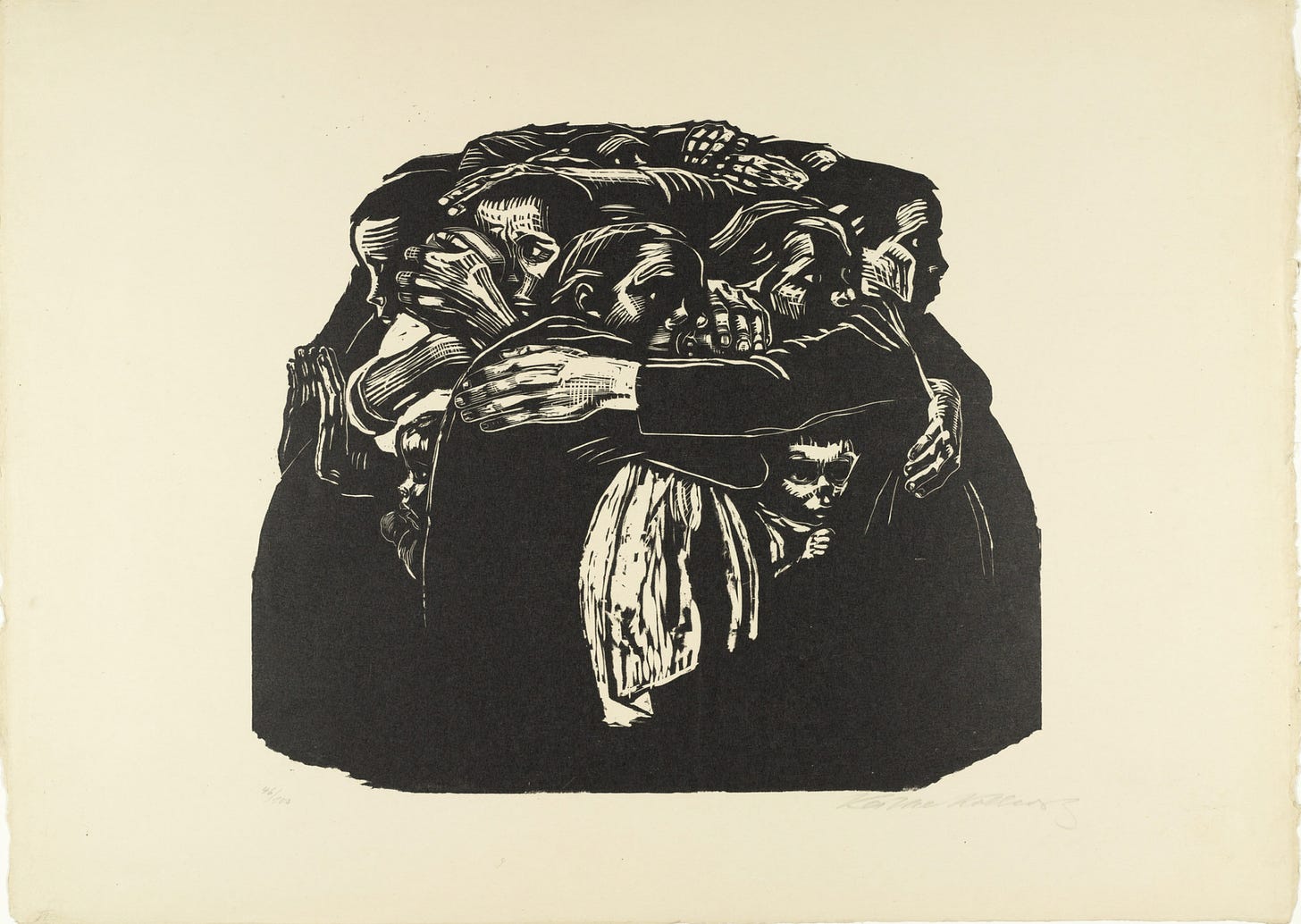One Monday, my fourth grade teacher asked us to share something we’d learned over the weekend. My hand shot up into the air,
“World War I was originally called The Great War because no one knew World War II was coming.”
The teacher looked confused. Probably because it was obvious that people in 1914 could not have known a world war would break out in the 1930s. But it had not been obvious to me. I'd never considered them separately. When I learned that World War II modified the name of World War I, something shifted in me. The shift made room for a new kind of fear. I’d always thought that truth remained true. But in this case, it hadn’t.
Another name for World War I was the ‘the war to end all wars’. The conflict was so consuming, it seemed to exhaust war itself. But then, of course, it didn’t. WWII came swiftly. It wasn’t just that the people in the past had not been able to foresee the future. The future reached back and changed the past. It changed the once standalone war to end all wars into the first in a series. The future’s ability to change the past terrified me. After all, The Great War had really been the war to end all wars, until it hadn’t.
When I raised my hand that day, I was sharing a very obvious fact in order to ask a question I didn’t know how to phrase,
What is true in this moment that will no longer be true in the future?

A kid worried about conquest, war, famine and death, I didn’t sleep much. I read until one and two in the morning. My dad always came to check in on me around midnight. He'd tell me everything was okay. Can you stop reading and turn the light off? Can you try to get some sleep? Some nights I could, some nights I couldn't.
One night when he came in, I was reading Zlata’s Diary. It's the diary of a little girl, kept during the Bosnian war in the early 90s. Zlata was older than me. She lived in a different part of the world. But that didn't seem like much separation. Her book taught me that war wasn’t just a thing in the past or future. It existed in the present too.
“Dad, what if everything always gets worse?”
He gave me a hug.
“Your grandma always said, ‘it was ever thus.’ Other people say, ‘There’s nothing new under the sun.’ Both just mean that human story is the same story, always. So things will always get worse. And then always get better and then worse again. Over and over. That doesn't get us out of work! It just means our work is to love each other. Our work is to try to make the worse times better and the better times better. Okay?"
Okay, dad.
He and my grandma were right, you know. Our technology changes, but humanity mostly stays the same. Over the years his words have been a comfort and a call to action. I’ve tried to remember them throughout the global pandemic and the rise of nationalism in my own country. It’s our work to make worse times better.
But as we wait to see if Russia is really going to invade Ukraine, I feel swirled out of the knowable cycle of the human story. We’re not in unprecedented times, but it feels like we are. And hell, they might not be unprecedented for humanity but they are unprecedented for me. My dad isn't here to check in on me. I find myself asking those two questions once again,
What is true in this moment that will no longer be true in the future? What if everything always gets worse?
I don’t know. I don't know.
If you want to know how Ukrainians react to Putin's speech, here's a glimpse: moms on Facebook discuss putting stickers on their children's clothes, when they go to school, indicating their blood type. Make no mistake: this speech was perceived as a declaration of war on Ukraine
— Olga Tokariuk (@olgatokariuk) February 21, 2022
I do know there are parents in Ukraine doing the work of loving their children in times that might get worse. They're brushing back bits of their babies' hair as they tuck them in. They're turning off the light as they tell their children that everything is going to okay.
I am praying the future keeps their words true.
Update: Russia invaded Ukraine. I don't know. I can't stop crying. That's all I've got.
When you describe Russian soldiers invading Ukraine right now as "peacekeepers", even when you use quotation marks, you are using language that Putin wants you to use. Call it what it is -- an invasion.
— Michael McFaul (@McFaul) February 21, 2022

